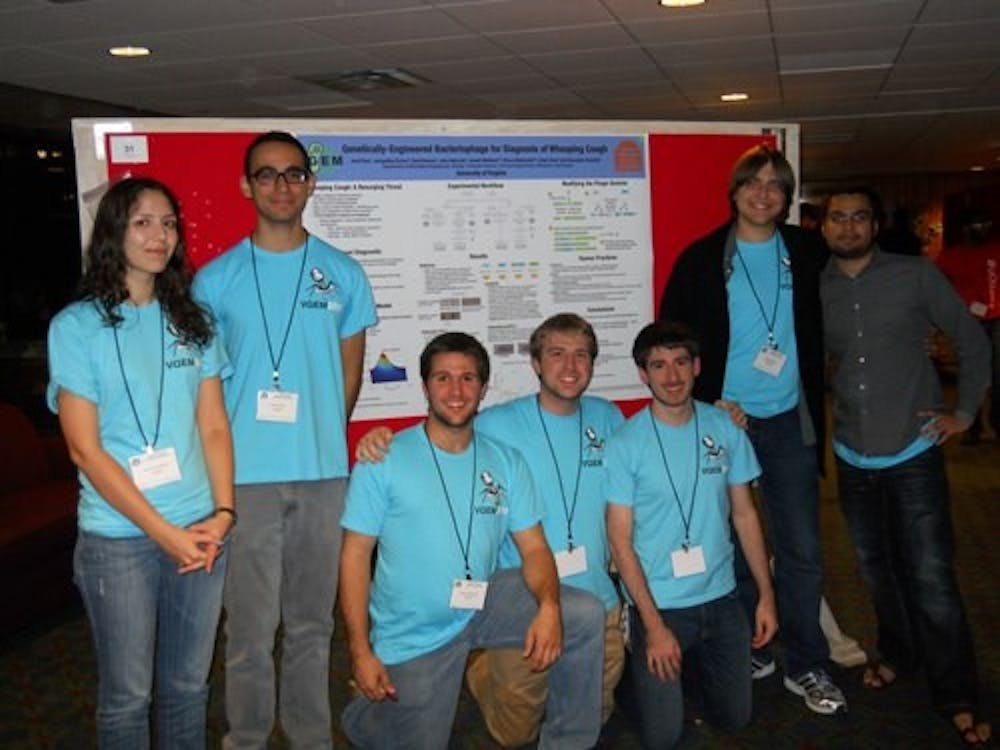The University’s International Genetically Engineered Machine team in October earned a silver medal in a Pittsburgh science competition for a project to detect whooping cough, a respiratory disease that causes uncontrollable coughing, faster and more accurately than existing methods.
At the East Regional iGem Jamboree, the team — made up of students from the College and Engineering School — presented its project to leading biological engineers. The team went on to compete in the world championships earlier this month but lost to a team from the Netherlands.
iGEM is an international competition that encourages students to combine engineering and biology. The students have to design a synthetic system and operate their project in living cells.
The highly contagious early symptoms of whooping cough — a disease that is responsible for around 300,000 deaths per year— are difficult to diagnose. Existing tests are fast but are costly and have a high false-positive rate. Blood tests can only confirm diagnosis two to eight week after the onset of the cough, third-year Engineering student Joshua Fass said. Culturing, a process that cultivates microorganisms in controlled conditions, takes a week to generate a diagnosis, he added.
The team used bacteriophages, viruses that infect bacteria, and took advantage of the antibody design in pregnancy tests to develop a rapid diagnostic test.
“In the clinic, a patient would basically cough into a tube containing the diagnostic phages, the sample would sit long enough for hCG [human chorionic gonadotropin, a hormone produced during pregnancy] to be produced and then the sample would be added to a pregnancy test, which would only be positive if the patient had whooping cough,” Fass said.
This test would provide a same-day diagnosis, Fass said. Quick and cheap, he said this project has promising potential worldwide in minimizing the spread of the disease.
The other five students involved in the project — fourth-year College student Jacqueline Grimm, third-year College student Syed Hassan, fourth-year College student Joseph Muldoon, third-year College student Omar Raza and fourth-year Engineering student Alexander Zorychta — took a seminar in the spring that led to a synthetic biology project during the summer. At that point fifth-year College student Shaun Moshasha and fourth-year Engineering student John Hubczak joined the team.
The team received its award based on the fulfillment of requirements rather than specific placing within the group of teams presenting, Fass said. Virginia also won a regional award for best experimental measurement approach.







